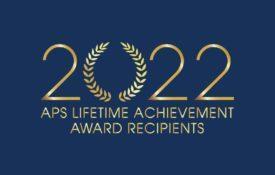-
Holidays Have You Happy Or Horrified? A Mindset Shift May Help You And Your Team
The holiday season is upon us! Winter is coming. For some, any celebration is great news, but for others, the combination of the omicron variant, holiday stress, and less sunshine may be impacting more than how they feel. It might also be impacting how they think. Worries Getting In The Way?
-
How Brains Seamlessly Switch between Languages
Billions of people worldwide speak two or more languages. (Though the estimates vary, many sources assert that more than half of the planet is bilingual or multilingual.) One of the most common experiences for these individuals is a phenomenon that experts call “code switching,” or shifting from one language to another within a single conversation or even a sentence.
-
Predicting the Future Is Possible. These ‘Superforecasters’ Know How.
Can we predict the future more accurately? It’s a question we humans have grappled with since the dawn of civilization — one that has massive implications for how we run our organizations, how we make policy decisions and how we live our everyday lives. It’s also the question that Philip Tetlock, a psychologist at the University of Pennsylvania and a co-author of “Superforecasting: The Art and Science of Prediction,” has dedicated his career to answering. In 2011 he recruited and trained a team of ordinary citizens to compete in a forecasting tournament sponsored by the U.S. intelligence community.
-
Why ‘Tight’ Cultures Had Better COVID Responses
“Culture is omnipresent: It’s all around us, but it’s invisible. We take it for granted,” says Michele Gelfand, professor of organizational behavior at the Stanford Graduate School of Business. “Often, when we get outside of our cultural bubble, we realize we’ve been socialized profoundly to have a certain set of norms and values.” How those norms vary and evolve is one of the primary focuses of Gelfand’s research. Most notably, she has found that cultures’ adherence to social norms falls along a spectrum from tight to loose. “Tight cultures, generally speaking, have more order,” she says. “They have less crime, more monitoring.
-

Fifteen Psychological Scientists Receive APS’s 2022 Lifetime Achievement Awards
Fifteen psychological scientists receive APS’s 2022 Lifetime Achievement Awards for their contributions to research, mentoring, scholarship, and academic achievement.
-

Recipe for Success: Entrepreneurship and Psychological Science
In this episode of Under the Cortex, we look the crossroads of business acumen and psychological science with the help of Nikki Blacksmith and Mo McCusker of Blackhawke Behavior Science.

